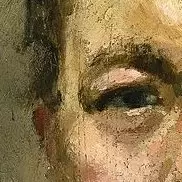The Apotheosis of War is a mid 19th century painting by Russian war artist Vasily Vereshchagin. Following his completion of the painting, Vereshchagin dedicated his work “to all great conquerors, past, present and to come”. Done in oil on canvas, the painting depicts a pile of skulls outside the walls of a city in Central Asia. It is considered part of Vereshchagin’s Turkestan Series.
Reminds me of this genuine photo of bison skulls from the late 1800s

The US government encouraged mass hunting of bison to force Native Americans to give up their way of life that depended on them and move to reservations where they would be “allowed” to live. Unless something valuable was discovered on that land later.
When colonists first started arriving there were upwards of 60 million bison in North America, traveling in vast herds that provided much of what various nomadic tribes needed to live on. At the lowest point in the late 1800s there were around 541 known animals in existence. Now there are around 500,000 in NA, the vast majority of which live on ranches and are farmed for meat. There are around 20,000 living on conservation lands.
Apotheosis (from Ancient Greek ἀποθέωσις (apothéōsis), from ἀποθεόω/ἀποθεῶ (apotheóō/apotheô) ‘to deify’), also called divinization or deification (from Latin deificatio ‘making divine’), is the glorification of a subject to divine levels and, commonly, the treatment of a human being, any other living thing, or an abstract idea in the likeness of a deity.


